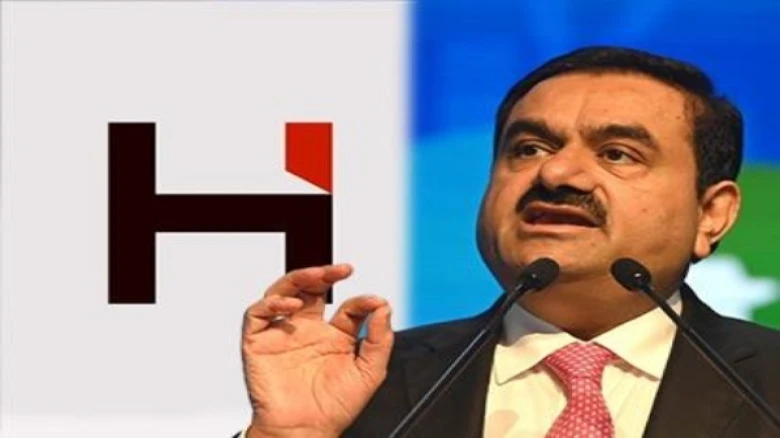In response, Adani Group stated that short-seller Hindenburg Research's report was motivated by "an ulterior objective" to "create a fake market"...
Digital Desk: Gautam Adani's company on Sunday (January 29) described the damaging charges made by short-seller Hindenburg Research as a "planned attack" on India, its systems and its growth story, adding the allegations are "nothing but a lie".
In reaction, Adani Group stated that the study was motivated by "an ulterior motive" to "create a false market" for the US corporation to profit financially. "This is not simply an unwarranted attack on any particular company, but a calculated attack on India, the independence, integrity, and quality of Indian institutions, as well as India's growth story and ambition," it stated.
Hindenburg Research's January 24 report is "a malicious combination of selective misinformation and withheld facts linked to baseless and discredited charges to drive an ulterior motive," according to the report.
Adani Group said in a statement late Sunday (January 29) that it was surprised and profoundly concerned to read the study issued on January 24 by the "Madoffs of Manhattan" - Hindenburg Research, which is nothing more than a fraud.
The document is a vicious blend of selective lies and suppressed facts linked to unsubstantiated and discredited charges, according to an official statement from Adani Group.
"This is fraught with conflict of interest and is designed solely to create a phoney market in securities so that Hindenburg, an admitted short seller, can earn large financial gains at the expense of many investors," the statement added.
It is extremely concerning that the remarks of a company based thousands of miles away, with no integrity or ethics, have had a significant and unprecedented negative influence on our investors. The report's mala fide motive is clear given its timing, which coincides with Adani Enterprises Limited's planned largest-ever further public sale of equity shares in India. This is a planned attack on India, the independence, integrity, and quality of Indian institutions, as well as the country's economic story and aspiration, according to Adani Group.
The Hindenburg Report has three major hooks: (1) The selective and manipulative presentation of already public information to construct a misleading narrative. (2) Total or willful ignorance of applicable legal and accounting requirements, as well as industry practice. (3) Disdain for Indian institutions, particularly regulators and the judiciary, according to Adani Group.
The report was released with Hindenburg's admitted intent (holding short positions in various listed companies in the Adani portfolio through US-traded bonds and non-Indian-traded derivatives, as well as other non-Indian-traded reference securities) to profit at the expense of our shareholders and public investors. Hindenburg did not publish this report for altruistic purposes, but for selfish reasons and in flagrant violation of statutory securities and foreign currency laws.
The reality is that Hindenburg is an unscrupulous short seller. A short seller in the securities market profits on the ensuing drop in share prices. Hindenburg took "short positions," and then issued a document to manipulate and depress the price of the stock and create a phoney market to cause a downward spiral of share price and make an unlawful gain. The false claims and insinuations spread like wildfire, wiping out a substantial portion of investor money while profiting Hindenburg. As a result, public investors suffer, while Hindenburg profited immensely. As a result, the report is neither "independent", "objective", nor "fully researched". The report claims to have conducted a "2-year investigation" and "uncovered evidence," yet it consists of only selective and partial excerpts of revealed information that has been in the public domain for years, if not decades. Attempts to highlight allegations that have since been found to be false narrates as fact what is attributed to hearsay, rumours, and gossip spread by unnamed sources such as "a former trader" or "touts" of a "close relationship," calls into question the independence of the nation's judicial processes and regulators, and selectively extracts statements devoid of context and with no understanding of Indian law or industry practise, according to Adani Group.
Ironically, for a corporation that promotes transparency and openness, nothing is known about Hindenburg, its workers, or its investors. Its website claims that the organisation has "decades of experience," however it appears to have been founded only in 2017.
Despite its claims of "transparency," Adani Group claims that Hindenburg has actively concealed the details of its short positions, the source of its own funding, who is behind them, the illegality underlying the synthetic structures through which they hold such positions, and the profit it has made by holding such positions in our securities.
None of these 88 questions is founded on independent or journalistic research. They are essentially selective rehashes of public revelations or rhetorical innuendos colouring rumours as reality. The report asks responses to "88 questions," 65 of which are related to items that Adani Portfolio firms have fully disclosed in their annual reports, which are available on their websites, offering memorandums, financial statements, and stock exchange filings from time to time. The remaining 23 questions concern public shareholders and third parties (rather than Adani portfolio firms), while the remaining 5 are unfounded charges based on fictitious fact patterns.


Leave A Comment